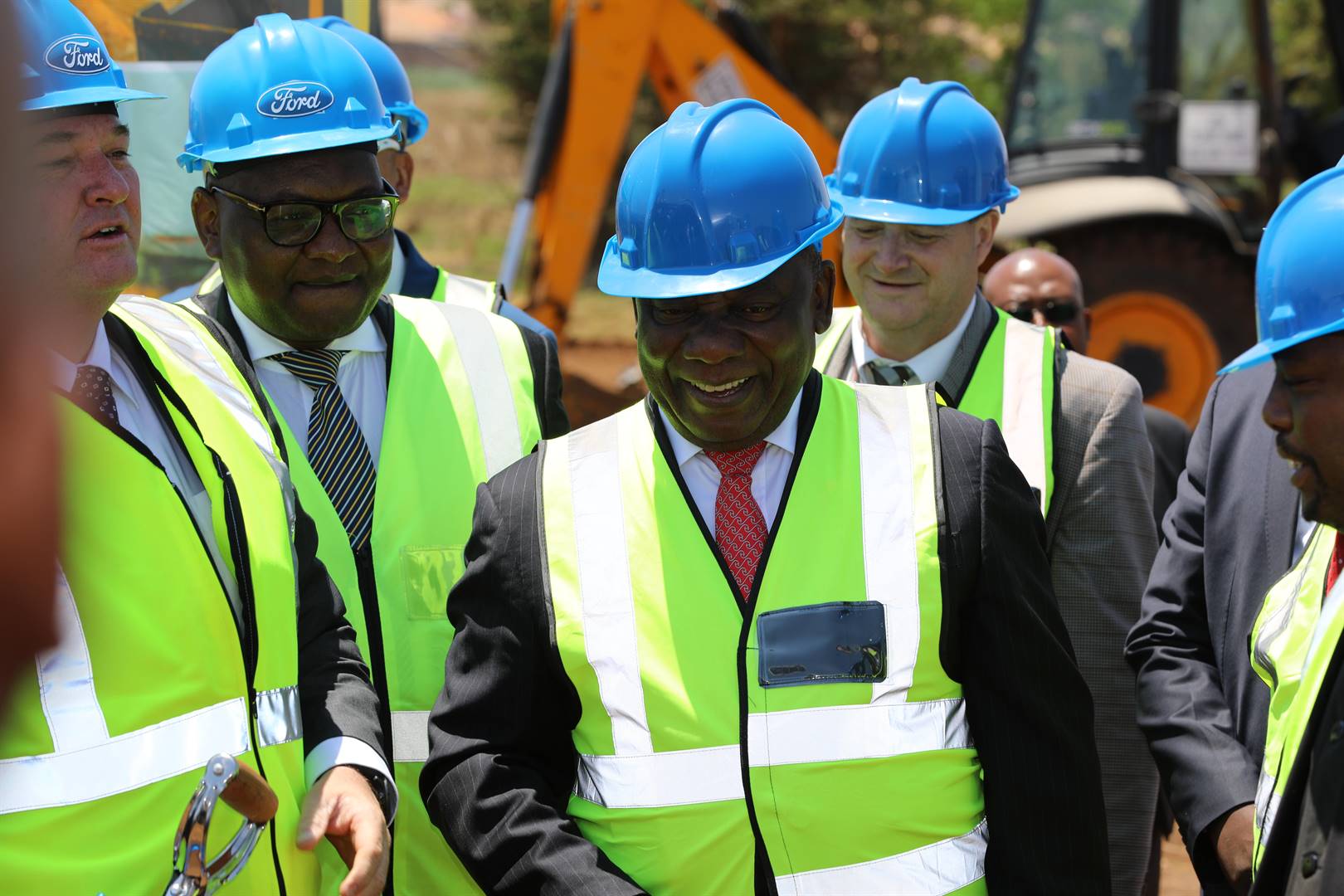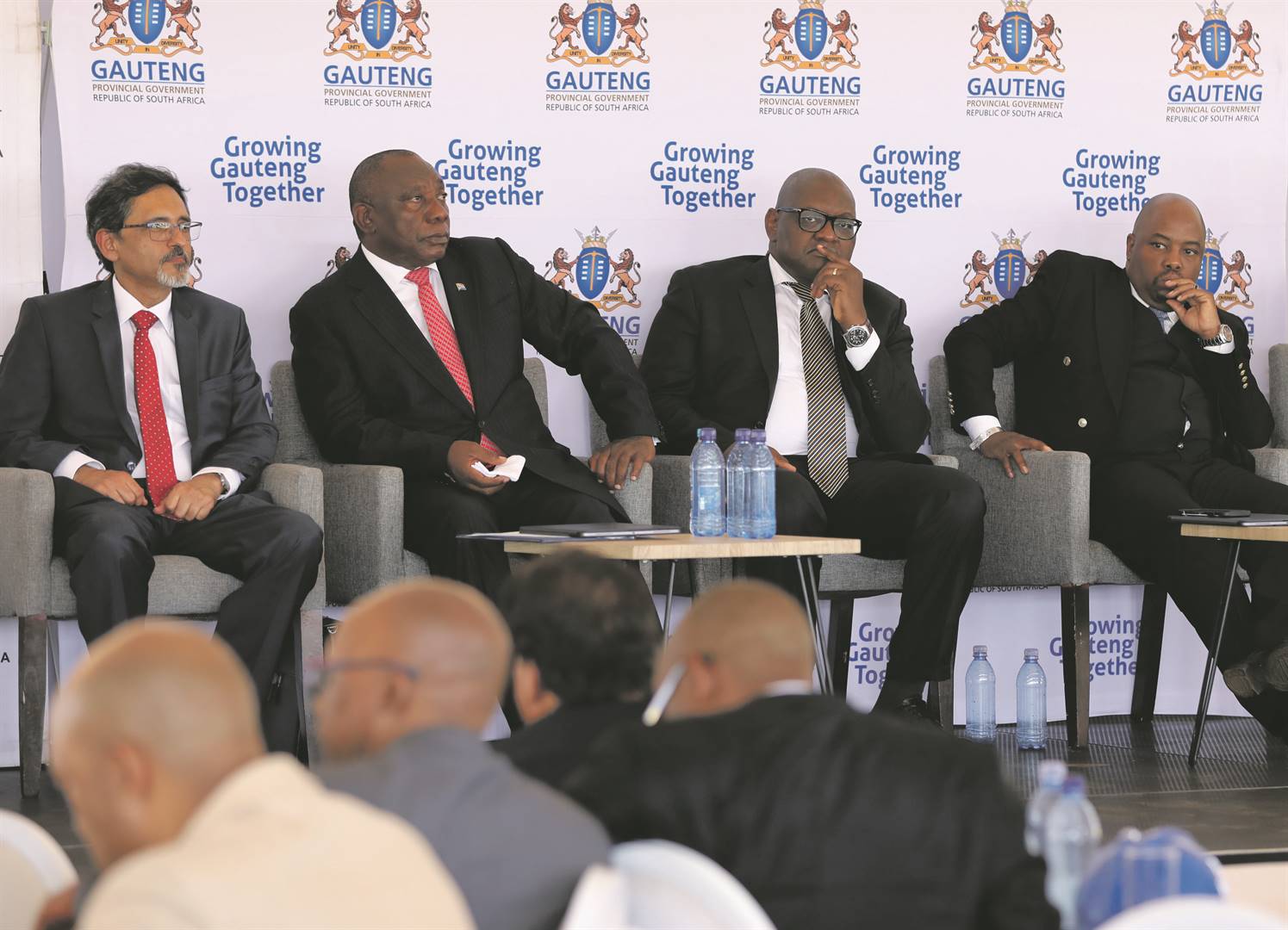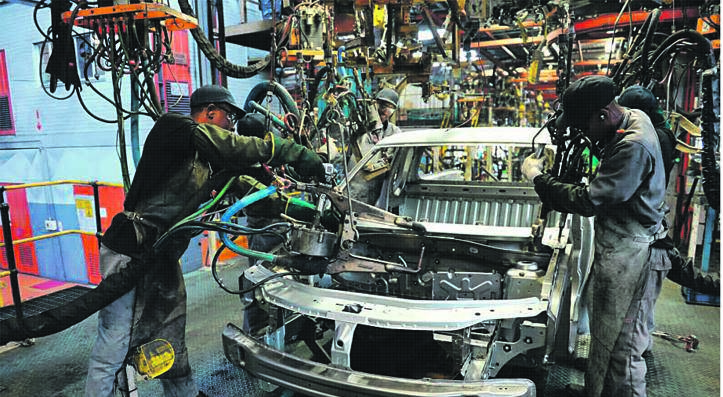
In his state of the province address in July, Gauteng Premier David Makhura said: “As the engine of South Africa’s economy, Gauteng needs to do much more to contribute to President Cyril Ramaphosa’s initiatives on economic recovery, investment, industrialisation, youth employment and the township economy. We must take a lead.”
Ramaphosa, Makhura and other dignitaries, officially launched the Tshwane Automotive Special Economic Zone (SEZ) in Silverton, Pretoria, last week.
This hub is part of a greater development dubbed the Tshwane Auto City, which is itself a part of the broad-ranging South African Automotive Masterplan, which incorporates the aspirational vision, objectives and strategic framework agreed on by industry stakeholders to optimally develop the South African automotive industry.
The master plan’s vision is to create “a globally competitive and transformed industry that actively contributes to the sustainable development of South Africa’s productive economy, creating prosperity for industry stakeholders and broader society”.
The Tshwane Auto City is modelled after places such as Detroit in the US, which houses America’s big three car makers, and Toyota City in Japan. A viable auto city is one that is globally competitive, and has research and development facilities, manufacturing plants, residential and retail spaces, a race and test track, and an efficient logistics chain. It also includes, crucially, favourable trading terms, which should be provided through incentives for the companies based in it.
Those already active in the greater Tshwane area are BMW SA, Nissan SA, Tata Trucks and UD Trucks, as well as a number of local component suppliers, with a large percentage of these housed in the Automotive Supplier Park, a dedicated component supplier park near the Nissan plant.
This launch continues the automotive industry’s Vision 2020 requirement for increased local content, and by 2035 the master plan expects a localisation rate of 60% and doubling employment in the sector.
Government’s automotive production and development programme aims to have the country produce 900 000 vehicles per annum by next year. It also gives additional impetus to the ongoing plan to turn Gauteng City Region into a single, multitier and integrated SEZ.
SEZs are policy interventions that boost manufacturing, and increase exports and employment, while at the same time linking local suppliers to the value chains of transnational corporations operating in the province.
They are part of the provincial government’s Gauteng Economic Development Plan, which has 11 key sectors located in the northern, eastern, southern, western and central corridors.
This programme, executed with industry leaders, has focus on the revitalisation of the manufacturing industry, particularly on the automotive sector, machinery and capital equipment, mineral beneficiation, aerospace industries, food and beverages, and pharmaceuticals.
Within the year, six companies committed to collectively invest more than R40 billion in the five corridors. These include AB InBev’s investment in Emfuleni, the Airports Company of SA’s investment at OR Tambo in Ekurhuleni, as well as investments by Cummins Engineering and CCL Labs in Midrand, Johannesburg.
The work done through SEZs is made possible by cooperation between all spheres of government and with private sector partnerships. When there are bottlenecks, they are unblocked by the stakeholders.
For example, when there were delays in approvals for the Tshwane Automotive Hub SEZ, Makhura met with the department of trade and industry, as well as with the chief executive officer (CEO) of Ford to expedite the process so that the construction could hit its targets.
“These joint sector-based initiatives between government and business are beginning to unlock the growth and job creation potential of different regional economies or corridors. This is a social compact in action,” said Makhura.
The idea behind these zones is to ensure that car manufacturers have what they need so that there is no need to make and warehouse parts. Instead the zones readily avail the required parts, which are made almost to order.
Equally important is that the parts are made by small- and medium-sized local businesses that meet the requirements of the automotive manufacturers, ensuring that jobs are created and money is fed into the local economy.
In June, Ford introduced a third shift, employing 1 200 new workers, mostly women and youth, at the Silverton automotive park.
Nine Ford suppliers have confirmed that they will set up operations in the new SEZ, says Ockert Berry, vice-president of Ford in the Middle East and Africa.
“Having these suppliers located adjacent to the Silverton assembly plant is a crucial step towards increasing the efficiency of our local operations, and unleashing further potential increases in production capacity for the domestic and export markets,” Berry said.
The initial phase of the new hub is expected to create 7 000 jobs. Once complete, the SEZ could create an estimated 70 000 jobs, Ford said in a statement. It is also expected to boost employment in the surrounding communities of Mamelodi, Nellmapius and Eersterust.
Speaking from the site of the hub, Ramaphosa hailed the development as important, as the country works to attract investment to grow the economy.
He added that the investment was “immensely encouraging and comes at a time when business, government, labour and civil society must work together to resolve the challenges of slow economic growth and unemployment”.
Lance Schultz, CEO of the Automotive Industry Development Centre (AIDC), which is collaborating with Ford on the project, said they developed a mixed-use spatial development plan with a design ethos of being a productive city, living city and green city.
“The AIDC is the designated operator of the Tshwane Automotive SEZ [and is] therefore responsible for the implementation of the project from the design phase to operational phase.”
He added that the SEZ would be built in phases, with a total production impact valued at R43.8 billion.
“The AIDC’s aim is to ensure that planned investment for phase one meets government’s objectives...”




 Publications
Publications
 Partners
Partners










